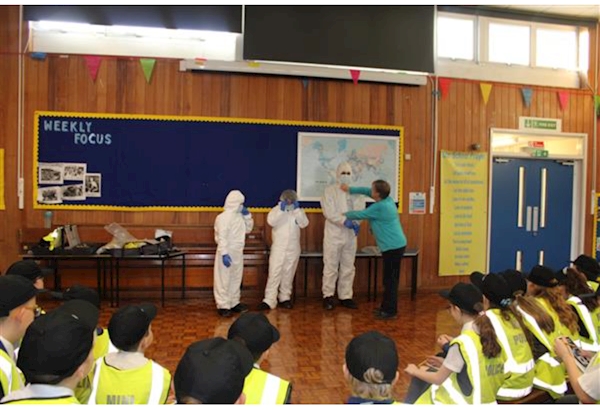
|
||
|
|
||
|
||
|
Fairfield Junior school Mini Police get a visit from CSI |
||
|
**Fairfield Junior Mini Police: A Visit from Crime Scene Investigators**
Yesterday, our Mini Police of received a visit from our Crime Scene Investigators (CSIs). During this engaging session, the children learned about the critical role of CSIs in gathering evidence at crime scenes, including techniques for collecting samples such as fingerprints and hair, as well as the protocols for packaging evidence for transport and analysis.
The Mini Police had the opportunity to try on the outer wear worn by CSIs, gaining insight into the significance of various types of evidence in the resolution of criminal cases.
**Key Responsibilities of Crime Scene Investigators:** 1. **Documentation of Crime Scenes:** CSIs are tasked with meticulously documenting crime scenes through photography, sketching, and comprehensive note-taking. This ensures that all pertinent aspects of the scene are accurately recorded. 2. **Evidence Collection:** CSIs expertly collect and package physical evidence found at crime scenes, which may include fingerprints, DNA samples, fibers, hair, weapons, tool marks, and other trace evidence. They utilize specialized techniques and tools to ensure the integrity of the evidence throughout the collection process. 3. **Forensic Analysis:** While preliminary forensic analyses, such as presumptive tests for blood or other bodily fluids, may be conducted on-site, most detailed analyses are performed in laboratory settings by forensic scientists or analysts. 4. **Crime Scene Reconstruction:** CSIs collaborate closely with various professionals, including forensic scientists, detectives, and prosecutors, to reconstruct crime scenes. They analyze evidence, patterns, and circumstances to understand the sequence of events and provide valuable insights for ongoing investigations. 5. **Report Writing:** CSIs prepare comprehensive reports that document their findings, the methodologies employed, and the evidence collected. These reports are essential for investigators, prosecutors, and the judiciary, offering a detailed account of the crime scene and the associated evidence. 6. **Testifying in Court:** CSIs may serve as expert witnesses in court, where they present their findings, elucidate the forensic techniques utilized, and clarify the evidence collected. Their testimony is crucial for establishing the credibility and reliability of the evidence. 7. **Collaboration:** CSIs work in conjunction with other law enforcement personnel, including detectives, forensic scientists, medical examiners, and legal professionals. This collaborative approach is vital for conducting thorough investigations and ensuring the provision of accurate, reliable evidence for the legal process. In summary, the role of a police crime scene investigator is fundamental in meticulously gathering and analyzing physical evidence, maintaining the integrity of crime scenes, and providing expert support in
| ||
Reply to this message | ||
|
|




